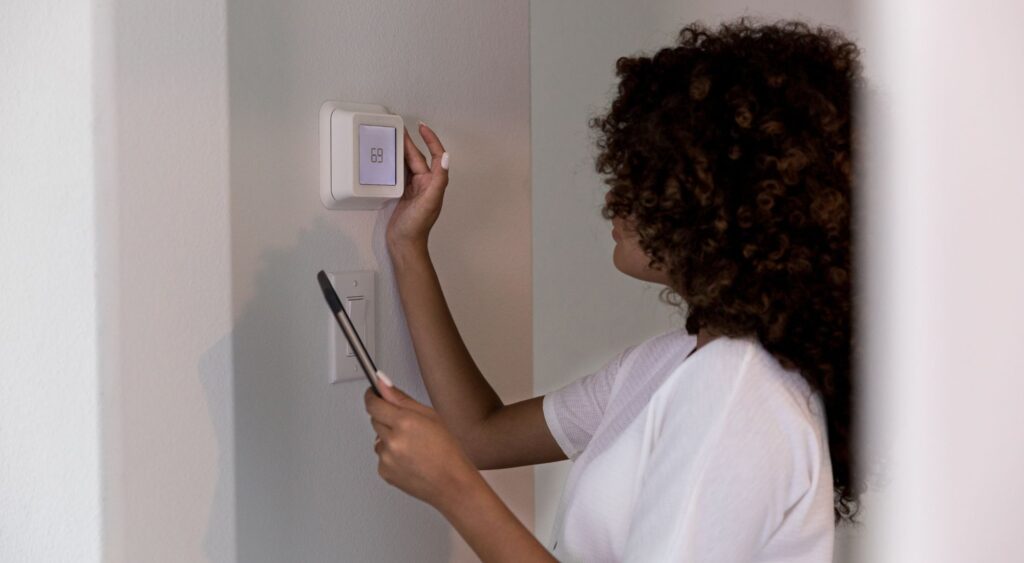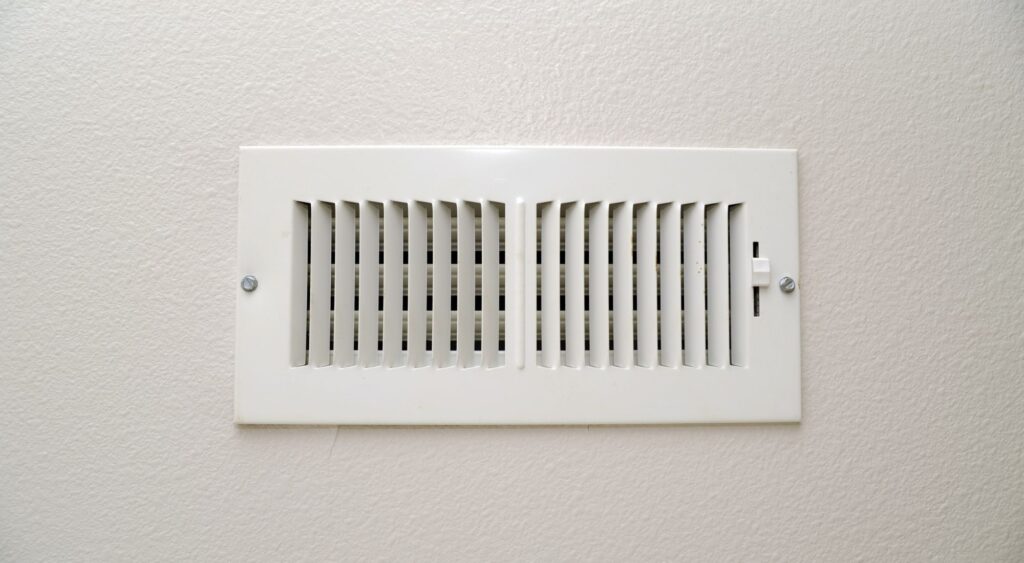
As a homeowner, no one expects you to have an encyclopedia of knowledge about your HVAC system, which is why you probably heard the term “HVAC damper” before but had no clue what it was.
Fortunately, AAA Heating and Cooling would be happy to get you up to speed on all the ins and outs of HVAC dampers.
Along with providing excellent service, our extensive HVAC knowledge can hardly be contained. Here, we will explain what a damper HVAC is, discuss its benefits, and address any other questions you may have.
Table of Contents
- What Is a Damper HVAC?
- How Do Dampers Work?
- Benefits of HVAC Dampers
- Other Common Questions About HVAC Dampers
- AAA Heating and Cooling: Residential HVAC Service, Repair & Installation in Beaverton & Portland
What Is a Damper HVAC?
A damper is a movable small valve or plate that controls the airflow in a building’s HVAC system.
These mechanisms regulate temperature through a zoning system. Zoning systems divide your home heating and cooling into different zones, giving you more options to control your air climate and energy usage.
Dampers monitor airflow, temperature, and humidity levels in your home while lowering or raising the zone’s temperature to your desired setting.
How Do Dampers Work?
Dampers control your home’s heating and cooling by opening and closing to limit one area while increasing it to the other.
HVAC zone dampers come in two types, manual and motorized:
- Manual dampers: These require the homeowner to twist a handle to regulate the airflow into a particular zone.
- Motorized or automatic dampers: These dampers work with your programmable zoning system and function independently. Because it works in tandem with programmable thermostats and other HVAC control systems, it tends to be more convenient and energy-efficient for homeowners.
Benefits of HVAC Dampers
One of the main benefits of dampers is that they improve your HVAC system’s control over airflow, therefore resulting in various other benefits.
Damper systems function differently than residential vent systems. Closing a vent on the floor or the wall will still allow air to travel through your ducts, thus wasting energy. HVAC dampers are located closer to the mouth of the distribution pipe, allowing them to regulate airflow as needed.
By preventing air leaks, dampers may help lower energy bills while also:
- Reducing noise (from the HVAC system)
- Saving energy
- Maximizing home comfort levels
- Lowering energy bills
One 2022 study found that home zoning systems may reduce heating and cooling bills by up to 30 percent. If you are looking to increase energy efficiency and save on utility bills, it might be time to consider a residential zoning system.
If you’re considering damper installation, AAA Heating and Cooling would love to help.
Our expert HVAC contractors in Beaverton and Portland can help you choose the right solution for your home or business. We are a family-owned company that is dedicated to providing quality services, repairs, installations, and outstanding customer service.
With every job we are assigned, we make sure to consider all of the factors to help you make informed decisions.
Other Common Questions About HVAC Dampers
Does Every HVAC System Have a Damper?
Not every HVAC system has dampers, but most do.
However, the number of dampers in a home may depend on its size and the HVAC system. Some builders may not choose to install dampers in homes to cut costs. If you do not have dampers, don’t worry!
A trusted HVAC professional should be able to install them. They will consider the size of your ducts, the type of dampers required, how to zone your rooms properly, and more.
AAA Heating in Cooling has provided reliable HVAC services to Portland and Beaverton communities for over 60 years. With an A+ Better Bureau Business (BBB) rating and commitment to high-quality products and services, no HVAC job is too little or too big for our team.
If you’re in the Beaverton or Portland area and need dampers installed, contact our team to schedule an appointment today.
Is It Okay To Close HVAC Dampers?
Yes! You can adjust your home’s temperature in various rooms by adjusting (opening/closing) your furnace’s dampers.
A manual HVAC damper contains a door that can be manually opened or closed to adjust airflow in a particular zone or room’s ductwork. To locate your dampers:
- Locate the main duct trunks leading from the furnace
- Look 2 to 6 feet off of the main trunk to easily identify your dampers
Once you have located your dampers, you can use the handle on each to either close or open them. The handle should be perpendicular to the duct when closed and pointing down the duct when opened. Each damper is associated with a specific room, so it’s essential to identify and label them.
How Long Do Dampers Last?
The quality of the equipment, how frequently you run your HVAC unit, and whether you follow regular maintenance schedules can all affect the lifespan of your HVAC components. With proper maintenance, dampers can last around 20 years.
AAA Heating and Cooling also offers seasonal HVAC maintenance plans that allow you to ensure your HVAC system is well-maintained without having to worry about it. A well-maintained HVAC system will extend its life and protect it from unexpected (and inconvenient) breakdowns.
How Do You Know If an HVAC Zoning System Works For Your Home?
Some homes have dampers installed in every run, some have only a few, and some have none.
HVAC dampers are good for any homeowner looking to save on their energy bills and increase their system’s efficiency.
When Having an HVAC Zoning System Makes Sense
You may want to consider installing an HVAC damper and zoning system if you have:
- A multi-level home: Since hot air rises, the upstairs rooms in your home may sometimes feel much warmer than the downstairs. An automatic dampening system might help you set different temperatures for the upstairs and downstairs of your home with one thermostat.
- A home with high ceilings: Homes with high ceilings may often experience trapped heat at the top. By using dampers to zone your HVAC system, you can increase your room’s temperature more frequently and circulate the air more strategically.
- A home with large windows: Sunlight can raise your home’s temperature in certain spots. A damper HVAC allows you to make rooms with large windows their own cooling zone to avoid uneven cooling. Then all the cooling power is sent to where it needs to be the most.
AAA Heating and Cooling has the industry knowledge to help efficiently coordinate and conduct your HVAC dampers installation.
We will walk you through the installation process while suggesting other helpful HVAC tips that might save you money, enhance your system’s efficiency, extend your system’s lifespan, and improve your home’s comfort levels.
Do you have other HVAC damper questions that you don’t see mentioned above? Just contact one of our heating and cooling professionals; we would love to talk about HVAC!
AAA Heating and Cooling: Residential HVAC Service, Repair & Installation in Beaverton & Portland
Considering a zoning system? Looking to repair or upgrade your existing model? Curious to learn more about zone dampers?
AAA Heating and Cooling is at your service.
We have proudly served the Beaverton and Portland area since 1961. Over the years, we’ve collected extensive HVAC knowledge and used it to solve various heating and cooling issues. From installing dampers on your existing HVAC system to retrofitting systems in older homes, there is little we can’t do.
If you need HVAC services and would like to join the ranks of our many satisfied clients, request an appointment today.



